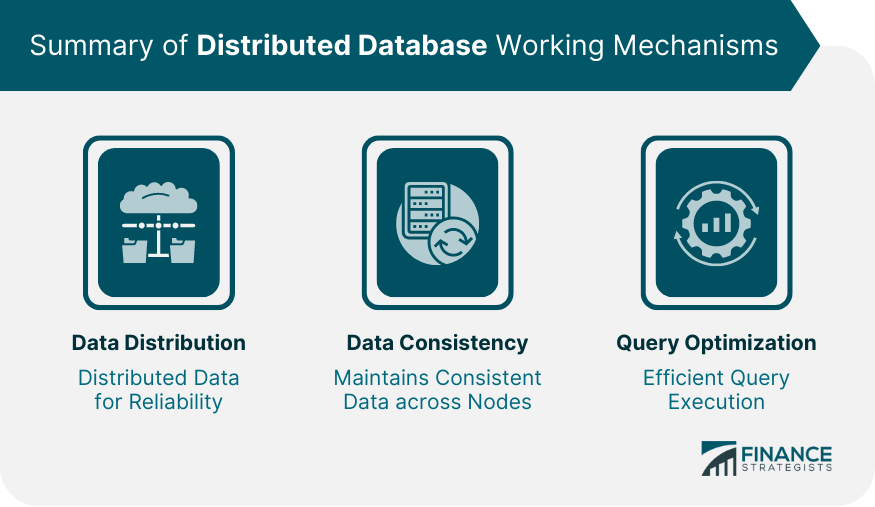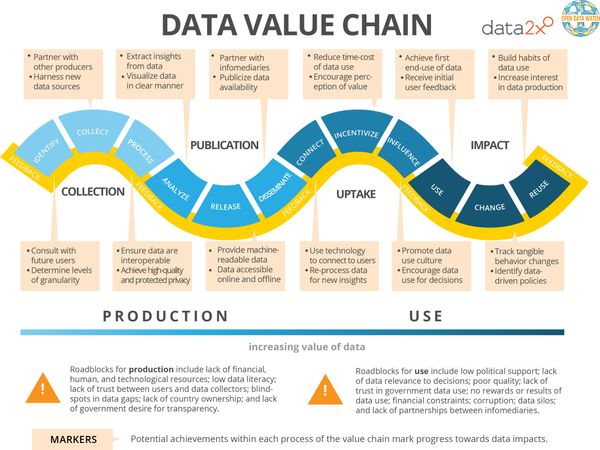Overview
Introduction to SQL query performance
In the field of database management, SQL query performance plays a crucial role in ensuring efficient and effective data retrieval and manipulation. The ability to quickly and accurately retrieve and process data is essential for organizations to make informed decisions and gain valuable insights. This article aims to provide an introduction to SQL query performance, focusing on the factors that impact performance and strategies for improving it. One key aspect of understanding and optimizing SQL query performance is analyzing the SQL query execution plan. The execution plan outlines the steps taken by the database management system to execute a query, including the order in which tables are accessed, the join methods used, and the indexes utilized. By examining the execution plan, developers and database administrators can identify potential bottlenecks and inefficiencies in query execution and make informed decisions to optimize performance. In this article, we will explore various techniques and best practices for analyzing and improving SQL query performance, with a specific focus on understanding and leveraging the SQL query execution plan.
Importance of optimizing SQL queries
Optimizing SQL queries is crucial for improving the performance of database systems. A well-optimized query can significantly reduce the execution time and resource consumption, resulting in faster and more efficient data retrieval. By analyzing the query execution plan, identifying bottlenecks, and applying optimization techniques such as indexing, query rewriting, and caching, developers can enhance the overall performance of their applications. Additionally, optimized SQL queries can also help in minimizing the load on the database server, improving scalability, and providing a better user experience. Therefore, understanding the importance of optimizing SQL queries is essential for any developer or database administrator.
Common performance issues in SQL queries
SQL queries are essential for retrieving and manipulating data in relational databases. However, there are common performance issues that can affect the efficiency and speed of these queries. One of the main issues is inefficient query design, where the query is not optimized for the database schema or uses inefficient join operations. Another common issue is the lack of proper indexing, which can result in slow query execution. Additionally, using suboptimal query patterns, such as using unnecessary subqueries or not utilizing query optimization techniques, can also impact query performance. It is important for developers and database administrators to be aware of these common issues and take steps to analyze and improve SQL query performance.
Understanding SQL Query Execution

Query parsing and compilation
Query parsing and compilation is a crucial step in the process of optimizing SQL query performance. It involves the analysis and transformation of the query into an executable form. One tool that can greatly assist in this process is the MariaDB Query Analyzer. This powerful tool provides insights into query execution plans, identifies potential performance bottlenecks, and suggests optimizations. By leveraging the capabilities of the MariaDB Query Analyzer, developers and database administrators can gain a deeper understanding of their SQL queries and make informed decisions to improve their performance.
Query optimization
Query optimization is a crucial aspect of improving SQL query performance. It involves analyzing and modifying queries to ensure they are executed as efficiently as possible. By optimizing queries, database administrators can reduce response times, improve scalability, and enhance overall system performance. There are several techniques and strategies that can be employed to optimize SQL queries, such as indexing, query rewriting, and caching. These techniques help to eliminate unnecessary operations, minimize data retrieval, and maximize resource utilization. Additionally, query optimization plays a significant role in ensuring that database systems can handle large volumes of data and complex queries without experiencing performance degradation. Overall, query optimization is an essential practice for database administrators and developers seeking to enhance the performance of their SQL queries.
Query execution and result retrieval
Query execution and result retrieval are crucial aspects of SQL query performance. When executing a query, the database management system (DBMS) analyzes the query’s structure and determines the most efficient way to retrieve the requested data. This involves evaluating indexes, statistics, and query execution plans to optimize the query execution process. Once the query is executed, the DBMS retrieves the result set and returns it to the user. The efficiency of this retrieval process can significantly impact the overall performance of the query. Therefore, it is essential to carefully analyze and optimize both the query execution and result retrieval steps to improve SQL query performance.
Identifying Performance Bottlenecks

Monitoring query execution time
Monitoring query execution time is essential for optimizing SQL query performance. By closely monitoring the time it takes for queries to execute, developers and database administrators can identify bottlenecks and areas for improvement. One important aspect of monitoring query execution time is analyzing the effectiveness of indexing techniques. Indexing techniques play a crucial role in optimizing query performance by allowing the database to quickly locate and retrieve the required data. By monitoring the impact of indexing techniques on query execution time, developers can make informed decisions about the most effective indexing strategies to use. This can lead to significant improvements in query performance and overall database efficiency.
Analyzing query execution plans
Analyzing query execution plans is a crucial step in improving SQL query performance. By examining the execution plans, developers can identify potential bottlenecks and optimize the queries accordingly. One important tool for analyzing query execution plans is the MySQL Community Edition. With its comprehensive set of features and performance enhancements, MySQL Community Edition provides developers with valuable insights into query performance. By leveraging the power of MySQL Community Edition, developers can fine-tune their queries and achieve significant performance improvements.
Identifying resource-intensive queries
Identifying resource-intensive queries is a crucial step in database optimization best practices. By identifying queries that consume a significant amount of system resources, such as CPU, memory, or disk I/O, we can focus our efforts on improving their performance. These resource-intensive queries can negatively impact the overall performance of the database, leading to slower response times and decreased user satisfaction. By analyzing the execution plans, query statistics, and monitoring system resource usage, we can pinpoint the queries that require optimization. Once identified, we can apply various techniques, such as index optimization, query rewriting, or database schema redesign, to improve the performance of these resource-intensive queries. By following these best practices, we can ensure that our database performs optimally and delivers efficient query execution.
Optimizing SQL Queries

Rewriting inefficient queries
In the section of ‘Rewriting inefficient queries’, we focus on improving the performance of SQL queries that are not efficient. By identifying and rewriting these queries, we can optimize the execution time and enhance the overall performance of the database server. This process involves analyzing the query structure, identifying bottlenecks, and utilizing database server features to improve efficiency. By leveraging the capabilities of the database server, we can enhance query execution, reduce response time, and improve the overall performance of the system.
Using appropriate indexes
Using appropriate indexes is crucial for optimizing SQL query performance. Indexes are data structures that provide quick access to specific rows in a table. By creating indexes on columns frequently used in queries, the database engine can quickly locate the desired data, resulting in faster query execution. However, it is important to carefully choose the columns to index, as adding too many indexes can negatively impact the performance of data modification operations, such as inserts, updates, and deletes. Additionally, regular monitoring and maintenance of indexes is necessary to ensure their effectiveness over time. Overall, using appropriate indexes is a key strategy for improving SQL query performance.
Optimizing joins and subqueries
Join operations and subqueries are common techniques used in SQL queries to combine data from multiple tables. However, these operations can have a significant impact on query performance, especially in situations with high-concurrency. To optimize joins and subqueries, several strategies can be employed. First, ensuring that appropriate indexes are in place on the join and subquery columns can greatly improve performance. Additionally, rewriting complex subqueries as join operations can often lead to more efficient execution plans. Another approach is to limit the number of rows involved in the join or subquery by using filtering conditions or reducing the result set size. By carefully analyzing and optimizing joins and subqueries, SQL query performance can be significantly enhanced in high-concurrency scenarios.
Caching and Query Tuning

Query result caching
Query result caching is a technique used to improve database performance. It involves storing the results of a query in memory so that subsequent executions of the same query can be retrieved from the cache instead of querying the database again. This can greatly reduce the amount of time it takes to retrieve data and improve overall system performance. By caching query results, the database can avoid the overhead of executing the same query multiple times, resulting in faster response times and improved efficiency. To optimize database performance, it is important to consider implementing query result caching as part of the overall performance tuning strategy.
Parameterized queries
Parameterized queries are a crucial aspect of improving SQL query performance. By using parameterized queries, we can separate the query logic from the input values, resulting in better security and performance. This approach allows the database engine to compile the query once and reuse the compiled plan for subsequent executions, reducing the overhead of query parsing and optimization. Additionally, parameterized queries help prevent SQL injection attacks by automatically escaping special characters. Overall, parameterized queries are an effective technique for optimizing SQL query performance.
Query tuning techniques
Query tuning techniques are essential for optimizing SQL Server performance. By analyzing and improving SQL query performance, developers can enhance the efficiency and speed of their database operations. This involves various strategies such as index optimization, query rewriting, and parameterization. Index optimization focuses on creating and maintaining appropriate indexes for efficient data retrieval. Query rewriting involves modifying the SQL query to improve its execution plan and reduce resource consumption. Parameterization helps in reusing query execution plans and reducing the overhead of query compilation. By implementing these query tuning techniques, developers can significantly enhance the overall performance of their SQL Server applications.
Conclusion

Summary of key points
The article “Analyzing and Improving SQL Query Performance” provides a comprehensive overview of Oracle optimization techniques. The key points discussed in the article include the importance of analyzing query execution plans, identifying and resolving performance bottlenecks, and utilizing indexing and caching techniques. The article also highlights the significance of query rewriting and using query hints to optimize SQL queries. Overall, the article serves as a valuable resource for understanding and improving SQL query performance in Oracle databases.
Importance of continuous query optimization
Continuous query optimization plays a crucial role in improving the performance of SQL queries. By constantly analyzing and fine-tuning the execution plans of queries, organizations can achieve significant improvements in query response times and overall database performance. This process involves identifying and resolving performance bottlenecks, such as inefficient join operations or suboptimal index usage. Additionally, continuous query optimization helps in adapting to changing data volumes and query patterns, ensuring that the SQL queries remain efficient and scalable. In comparison to NoSQL databases, which often prioritize scalability over query optimization, SQL databases provide a robust framework for optimizing and fine-tuning queries to meet specific performance requirements. Therefore, understanding the importance of continuous query optimization is essential for organizations relying on SQL databases for their data management needs.
Future trends in SQL query performance
In recent years, the field of database optimization has seen significant advancements and continues to evolve at a rapid pace. As technology continues to advance, so too do the demands placed on SQL query performance. To meet these demands, researchers and practitioners are exploring various future trends in SQL query performance. One such trend is the use of machine learning algorithms to optimize query execution plans. By leveraging the power of artificial intelligence, these algorithms can analyze large amounts of data and learn from past query performance to make intelligent decisions about how to best execute SQL queries. Another trend is the adoption of cloud-based database systems, which offer scalability, flexibility, and improved query performance. With the ability to scale resources on-demand, these systems can handle increasing data volumes and complex queries more efficiently. Additionally, advancements in hardware technologies, such as the use of solid-state drives (SSDs) and in-memory databases, are also expected to contribute to improved SQL query performance in the future. As the field of database optimization continues to evolve, it is clear that future trends in SQL query performance will focus on leveraging cutting-edge technologies to improve query execution speed and efficiency.







